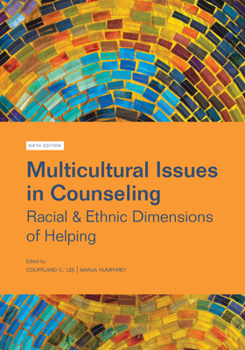Multicultural Issues in Counseling: Racial & Ethnic Dimensions of Helping
The revised edition of Multicultural Issues in Counseling reflects the changing socio-political landscape as pertains to social justice and multicultural diversity and impact on mental health.
The sixth edition of this essential resource offers counselors concrete pathways to create spaces that honor diversity, foster healing, and strengthen resilience across racial and ethnic identities. Edited by Courtland C. Lee and Marja Humphrey, this edition focuses on the cultural experiences of racially and ethnically diverse clients, centering antiracism and social justice as essential principles of culturally responsive counseling. Understanding that race and ethnicity are critical - though not sole - factors that shape well-being, this book examines the counseling and development needs of people of color and provides guiding frameworks to help practitioners address systemic inequities and promote equitable access to mental health services.Format:Paperback
Language:English
ISBN:1556200137
ISBN13:9781556200137
Release Date:June 2026
Publisher:American Counseling Association
Length:500 Pages
Related Subjects
PsychologyCustomer Reviews
0 rating





